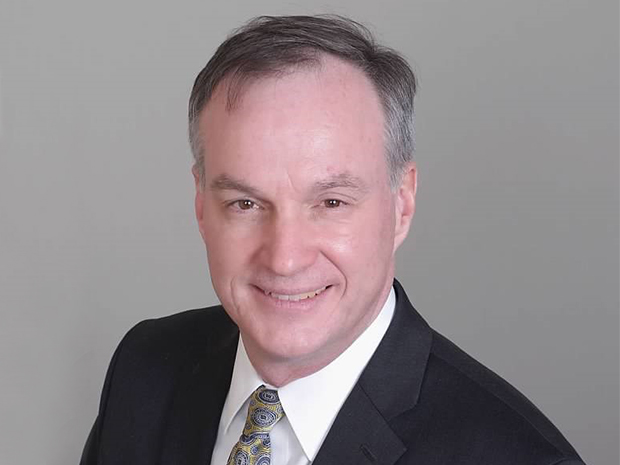RSM represented the middle market on Capitol Hill, educating House and Senate staffers on the limitation on the deduction of business interest.
Key takeaways
The deduction limitation calculation changed in 2022 and has since been exacerbated by elevated interest rates.
It is uncertain whether Congress will amend the business interest deduction calculation.
As Congress considers whether to address several pressing issues, including tax policy, before the end of 2023, RSM’s tax policy and Washington National Tax teams were on Capitol Hill on Sept.14 to represent the middle market in educating approximately 50 House and Senate staffers, industry representatives and news media members about how the new business interest expense deduction limitation is affecting businesses.
With Sens. Shelley Capito and Kyrsten Sinema in attendance for part of the briefing, RSM Tax Policy Leader Jim Alex and Washington National Tax Leader Matt Talcoff conveyed to staffers of both parties how the section 163(j) calculation—particularly the change in 2022 to using earnings before interest and taxes (EBIT)—has exacerbated economic issues and challenged middle market businesses.
“We were able to first explain and then personalize how the change to EBIT in the 163(j) calculation is affecting hiring and other capital investments, especially in the wake of rising interest rates,” said Alex. “This is crucial for policymakers to understand. Most middle market businesses don’t have the opportunity to come to Washington, D.C., to make their concerns heard. For us to represent them is supremely important.”
Many businesses in the middle market do not enjoy the same access to public equity markets as many of their larger competitors. They tend to rely more on debt than equity financing for their capital expenditures. Those capital expenditures are critical to increasing productivity, which reduces cost and overall inflation.
“We sought to elevate this issue in the broader tax policy conversation, and the engagement by staffers and attendees was encouraging,” said Talcoff. “Every day, we work with businesses that feel the weight of this new calculation. We’re fortunate to be able to convey those ramifications to people who help shape the policies.”
Alex and Talcoff explained the technical elements of the new calculation and exemplified its effects. As of the beginning of 2022, businesses can no longer include depreciation and amortization in calculating adjusted taxable income (ATI). ATI is used in part to determine the total amount of possible annual business interest expense deduction. This change has reduced the deductions for businesses across industries, with a relatively heavy toll on those that are capital-intensive.
Most middle market businesses don’t have the opportunity to come to Washington, D.C., to make their concerns heard. For us to represent them is supremely important.
The National Association of Manufacturers and the National Restaurant Association participated in the briefing, joining RSM’s tax policy and WNT teams, which included Fred Gordon, Ryan Corcoran and Tony Coughlan.
They heard from Sens. Capito and Sinema, who, in April, sponsored legislation to permanently extend the allowance of depreciation, amortization or depletion in calculating the income limitation on the business interest deduction. The American Investment in Manufacturing Act would apply the change to tax years beginning after Dec. 31, 2021. It does not propose eliminating the deduction limitation but remediates the change that occurred last year.
The Sept. 14 event was the most recent of RSM’s efforts to educate policymakers on how tax policies affect the middle market. In October 2022, the firm submitted a comment letter to congressional leaders explaining how the changed calculation of the business interest deduction limitation would affect businesses. The change results from a provision in the Tax Cuts and Jobs Act of 2017.
RSM’s tax policy team has taken similar steps to represent the middle market before policymakers on the ramifications of the 2022 change to the tax treatment of research and development expenses under section 174.

We sought to elevate this issue in the broader tax policy conversation. We’re fortunate to be able to convey those ramifications to people who help shape the policies.
The legislative outlook for those and other tax policy issues remains uncertain entering the final quarter of 2023. Many members of both parties in the divided Congress generally acknowledge the economic benefits of addressing these tax policies by enacting legislation before the end of the year. However, political and policy dynamics, as well as other major priorities, have complicated progress to this point.
RSM will provide a tax policy update on Nov. 2 at a Tax in Motion virtual webcast. Save the date and stay tuned for details.
RSM contributors
Featured event
Financial conditions and the cost of doing business inside the real economy
Join RSM Chief Economist Joe Brusuelas and U.S. Chamber of Commerce Executive Vice President Neil Bradley as they discuss economic factors that point to a soft landing, including growth, materials pricing, labor outlook and other issues affecting middle market businesses.

Tax resources
Timely updates and analysis of changing federal, state and international tax policy and regulation.
Subscribe now
Stay updated on tax planning and regulatory topics that affect you and your business.
Washington National Tax
Experienced tax professionals track regulations, policies and legislation to help translate changes.




